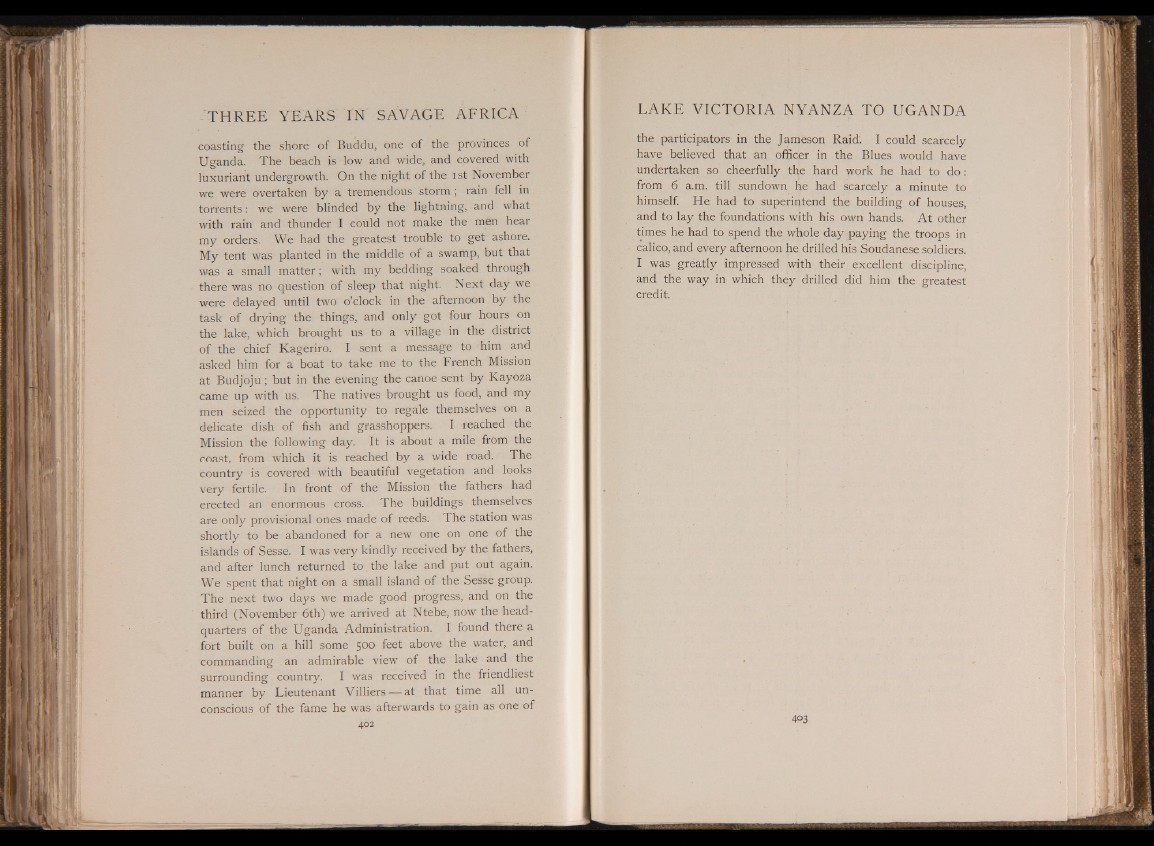
coasting the shore of Buddu, one of the provinces of
Uganda. The beach is low and wide, and covered with
luxuriant undergrowth. On the night of the ist November
we were overtaken by a tremendous storm ; rain fell in
torrents: we were blinded by the lightning, and what
with rain and thunder I could not make the men hear
my orders. We had the greatest trouble to get ashore.
My tent was planted in the middle of a swamp, but that
was a small matter; with my bedding soaked through
there was no question of sleep that night. Next day we
were delayed until two o’clock in the afternoon by the
task of drying the things, and only got four hours on
the lake, which brought us to a village in the district
of the chief Kageriro. I sent a message to him and
asked him for a boat to take me to the French Mission
at Budjoju; but in the evening the canoe sent by Kayoza
came up with us. The natives brought us food, and my
men seized the opportunity to regale themselves on a
delicate dish of fish and grasshoppers. I reached the
Mission the following day. It is about a mile from the
coast, from which it is reached by a wide road. The
country is covered with beautiful vegetation and looks
very fertile. In front of the Mission the fathers had
erected an enormous cross. The buildings themselves
are only provisional ones made of reeds. The station was
shortly to be abandoned for a new one on one of the
islands of Sesse. I was very kindly received by the fathers,
and after lunch returned to.the lake and put out again.
We spent that night on a small island of the Sesse group.
The next two days we made good progress, and on the
third (November 6th) we arrived at Ntebe, now the headquarters
of the Uganda Administration. I found there a
fort built on a hill some 5 °° feet above the water, and
commanding an admirable view of the lake and the
surrounding country. I was received in the friendliest
manner by Lieutenant Villiers — at that time all unconscious
of the fame he was afterwards to gain as one of
402
the participators in the Jameson Raid'. I could scarcely
have believed that an officer in the Blues would have
undertaken so cheerfully the hard work he had to do:
from 6 a.m. till sundown he had scarcely a minute to
himself. He had to superintend the building of houses,
and to lay the foundations with his own hands. At other
times he had to spend the whole day paying the troops in
calico, and every afternoon he drilled his Soudanese soldiers.
I was greatly impressed with their excellent discipline,
and the way in which they drilled did him the greatest
credit.